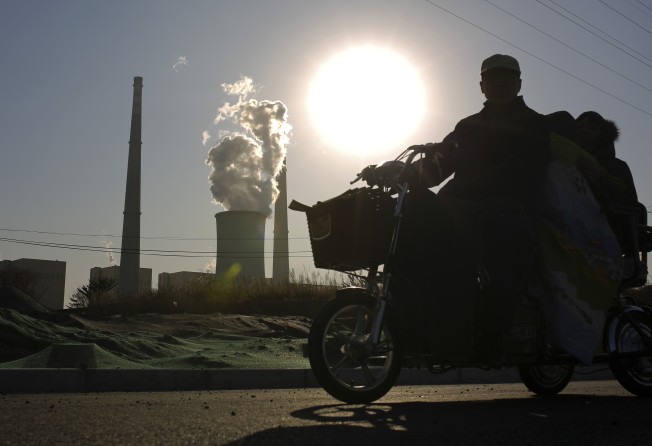A price on pollution: It's time for the world to face the true cost of high-carbon living
Jim Yong Kim and Christine Lagarde say governments and the private sector must act in concert to cut emissions and slow global warming

In just six weeks, world leaders will meet in Paris to negotiate a new global climate change agreement. To date, 150 countries have submitted plans detailing how they will move their economies along a more resilient low-carbon trajectory. These plans represent the first generation of investments to build a competitive future without the dangerous levels of carbon-dioxide emissions that are now driving global warming.
The transition to a cleaner future will require both government action and the right incentives for the private sector. At the centre should be a strong public policy that puts a price on carbon pollution. Placing a higher price on carbon-based fuels, electricity and industrial activities will create incentives for the use of cleaner fuels, save energy and promote a shift to greener investments. Measures such as carbon taxes and fees, emissions-trading programmes and other pricing mechanisms, and removal of inefficient subsidies, can give businesses and households the certainty they need to make long-term investments in climate-smart development.
At the International Monetary Fund, the focus is on reforming its member countries' fiscal systems to raise more revenue from taxes on carbon-intensive fuels and less revenue from other taxes that are detrimental to economic performance, such as taxes on labour and capital. Pricing carbon can be about smarter, more efficient tax systems, rather than higher taxes.

The World Bank Group is supporting countries and businesses as they develop climate-friendly public policies, invest in carbon markets and explore financial innovations to ease into low-carbon transitions. We have developed initial principles to help guide future carbon-pricing schemes.
We need to promote dialogue about the necessary policy measures before and beyond the conference in Paris. That is why we are announcing a "Carbon Pricing Panel", which will bring together heads of state, city and state leaders, and representatives of top companies to urge countries and businesses around the world to put a price on carbon.
Carbon pricing policies are already being implemented by some 40 national governments, including that of China, the world's largest emitter, and 23 cities, states and regions. Many other governments are also reforming energy prices, and more than 400 companies report using a voluntary, internal carbon price.
These actions are initial steps. Governments must seize the moment to put a price on carbon pollution. The longer we wait, the costlier and more difficult it will be to protect the planet.
Jim Yong Kim is president of the World Bank Group. Christine Lagarde is managing director of the International Monetary Fund. Copyright: Project Syndicate